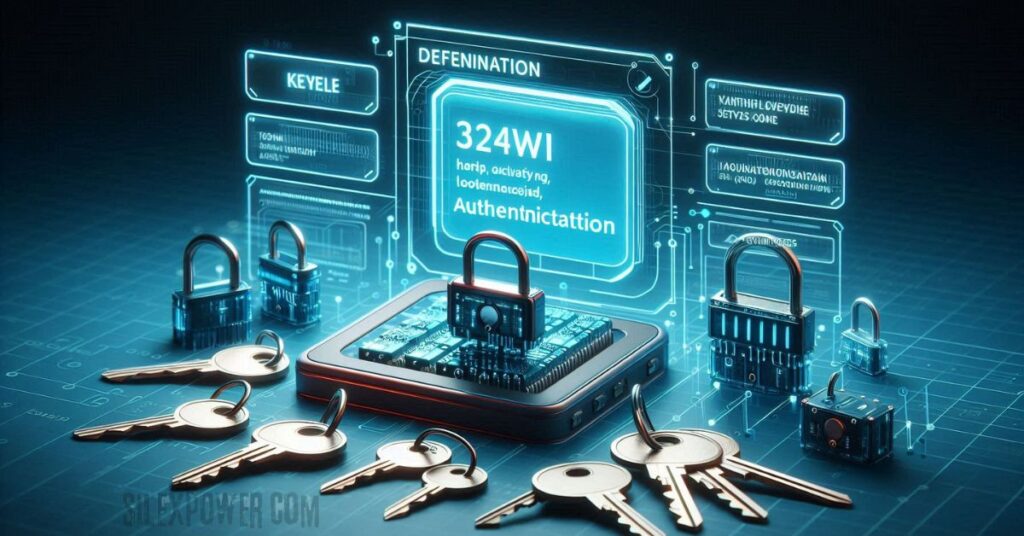Introduction
First Things First Security is critical in the current digital era. Stronger solutions are required since traditional password systems are becoming more and more susceptible to assaults. Here comes 1324HWKeys, a state-of-the-art hardware security solution that offers unmatched defense. This in-depth manual explores the capabilities, uses, and reasons why 1324HWKeys are becoming essential in today’s cybersecurity landscape.
What Are 1324HWKeys?
To put it briefly, 1324HK are specialized hardware tools used for physical authentication; as opposed to traditional passwords, which are easily cracked, 1324HK provide a physical layer of security that is difficult to break, ensuring that only authorized users can access protected systems and data using advanced encryption techniques.
Historical Background: Over the years, the idea of hardware security keys has undergone tremendous change. These keys were first employed as straightforward physical tokens, but they have now been updated to include cutting-edge encryption technology, meeting the increasing demand for safe and convenient authentication methods.
Why 1324HWKeys Matter:
Enhanced Security: Advanced cyber threats frequently outweigh traditional password-based security measures. 1324HK offers an extra degree of defense, making illegal access much more difficult.
Ease of Use: Even though 1324HK has sophisticated technology, they are easy to use. Users don’t need to be highly technical to integrate these keys into their systems; it’s a straightforward plug-and-play setup.
Compatibility: From desktop PCs to systems at the corporate level, these keys are made to function flawlessly on a wide range of platforms and gadgets.
Key Features of 1324HWKeys:
Advanced Encryption Standards: Protect sensitive data and user credentials by utilizing cutting-edge encryption technologies.
Two-Factor Authentication Support: Connect using two-factor authentication (2FA) systems, which demand access with both a hardware key and a password.
Cross-Platform Compatibility: Work well on a variety of devices and operating systems.
User-Friendly Design: Offer simple setup procedures and user-friendly interfaces.
How 1324HWKeys Enhance Security:
Protection Against Phishing Attacks: Phishing attempts are rendered useless by 1324HK, which need physical ownership of the hardware key.
Mitigating Unauthorized Access: Because 1324HK requires the physical key, they prohibit unwanted access even in the event that passwords are compromised.
Role in Secure Transactions: Reduce the possibility of fraud by making sure that transactions are verified and approved by authorized users.
Applications of 1324HWKeys:
Enterprise-Level Security: Companies use 1324HK to manage access to internal systems and safeguard confidential company information.
Personal Data Protection: 1324HK is used by people to protect their personal accounts on social media, cloud storage, and email.
Integration in Financial Services: In order to authenticate users during online banking sessions, banks and other financial organizations employ 1324HK.
Use in Government Agencies: Governmental organizations use 1324HK to manage access to secure communication channels and classified information.
Comparing 1324HWKeys with Software-Based Solutions:
Advantages of Hardware Keys: Increased security through physical ownership requirements, less vulnerability to viruses and hackers, and an easy-to-use interface.
Limitations of Software-Only Security: Susceptibility to online dangers like malware, phishing, and keyloggers.
Implementing 1324HWKeys in Your Security Infrastructure:
Steps for Integration:
Assess current security needs.
Select compatible 1324HK.
Develop a deployment plan.
Integrate hardware keys into existing authentication systems.
Monitor and evaluate effectiveness.
Best Practices for Deployment:
Ensure comprehensive user training.
Establish protocols for lost or stolen keys.
Regularly update and maintain hardware and software.
Tips for Smooth Integration: Before implementing on a large scale, carry out pilot testing to find any possible problems and work with IT staff to guarantee a smooth transition.
Challenges and Considerations:
Potential Risks and Mitigation: Use safe deactivation/replacement procedures and backup keys to mitigate hazards like lost or stolen devices.
Cost Implications: Analyze long-term gains to support the investment.
Compatibility Issues: In order to integrate with current systems effectively, plan and test.
Addressing User Resistance:
Clear Communication: Draw attention to the advantages of enhanced security and usability.
Training Programs: Give detailed instructions, demonstrations, and assistance to help people become more comfortable using the keys.
Simplified Implementation: Create processes to guarantee smooth adoption and reduce disturbance.
Future Trends in Hardware Security:
Biometric Integration: Enhancing security by combining mechanical keys with facial or fingerprint recognition.
Cloud Connectivity: Smooth synchronization with cloud-based services is made possible.
Smaller, Smarter Designs: It is probable that technological advancements will lead to devices that are more compact and multipurpose.
Real-World Case Studies:
Successful Implementations in Various Industries: highlighting businesses that have successfully incorporated 1324HWKeys, thereby lowering the risk of illegal access and security breaches.
Lessons Learned from Real-World Deployments: Observations and Useful Guidance from Businesses that Have Implemented 1324HK.
Expert Opinions and Insights:
Quotes from Cybersecurity Experts: With opinions and thoughts from prominent figures in the field regarding the significance and prospects of 1324HK.
Analysis and Predictions from Industry Leaders: Talking about how hardware keys’ positions in digital security is changing.
User Testimonials:
Experiences from Users who Benefited from 1324HK: Presenting actual accounts of people and businesses using 1324HWKeys to strengthen their security posture.
How 1324HK Improved Security for Individuals and Organizations: In-depth explanations of how hardware keys have significantly improved a variety of settings.
Best Practices for Maintaining 1324HWKeys:
Regular Updates and Maintenance Tips: keeping hardware keys safe and current at all times.
Strategies for Secure Storage and Handling: Using hardware keys to prevent loss or damage is a sensible idea.
Integration with Emerging Technologies:
Use in IoT (Internet of Things) Devices: Investigating how 1324HK can be used to secure Internet of Things apps and smart home devices.
Role in Smart Home and Automotive Systems: boosting home and car security for linked devices.
Impact on Regulatory Compliance:
How 1324HK Help Meet Industry Regulations: Making sure that data protection regulations and guidelines are followed.
Ensuring Compliance with Data Protection Laws: Being aware of the advantages of employing hardware keys and the legal ramifications.
Environmental Considerations:
Eco-Friendly Manufacturing Practices: Encouraging hardware key production approaches that are sustainable.
Disposal and Recycling of Hardware Keys: Addressing hardware keys’ negative effects on the environment and encouraging appropriate disposal.
Future Innovations in Hardware Security:
Upcoming Trends and Developments: Forecasting the development of hardware security technologies in the future.
Predictions for the Next Generation of Hardware Keys: Investigating how 1324HK may develop further and influence digital security in the future.
Conclusion:
With their strong defense against constantly changing online attacks, 1324HK are quickly becoming a necessary instrument in contemporary cybersecurity. Both people and companies can benefit greatly from their interoperability and convenience of usage. As technology develops further, 1324HK will become increasingly important for protecting sensitive data and securing online interactions.



